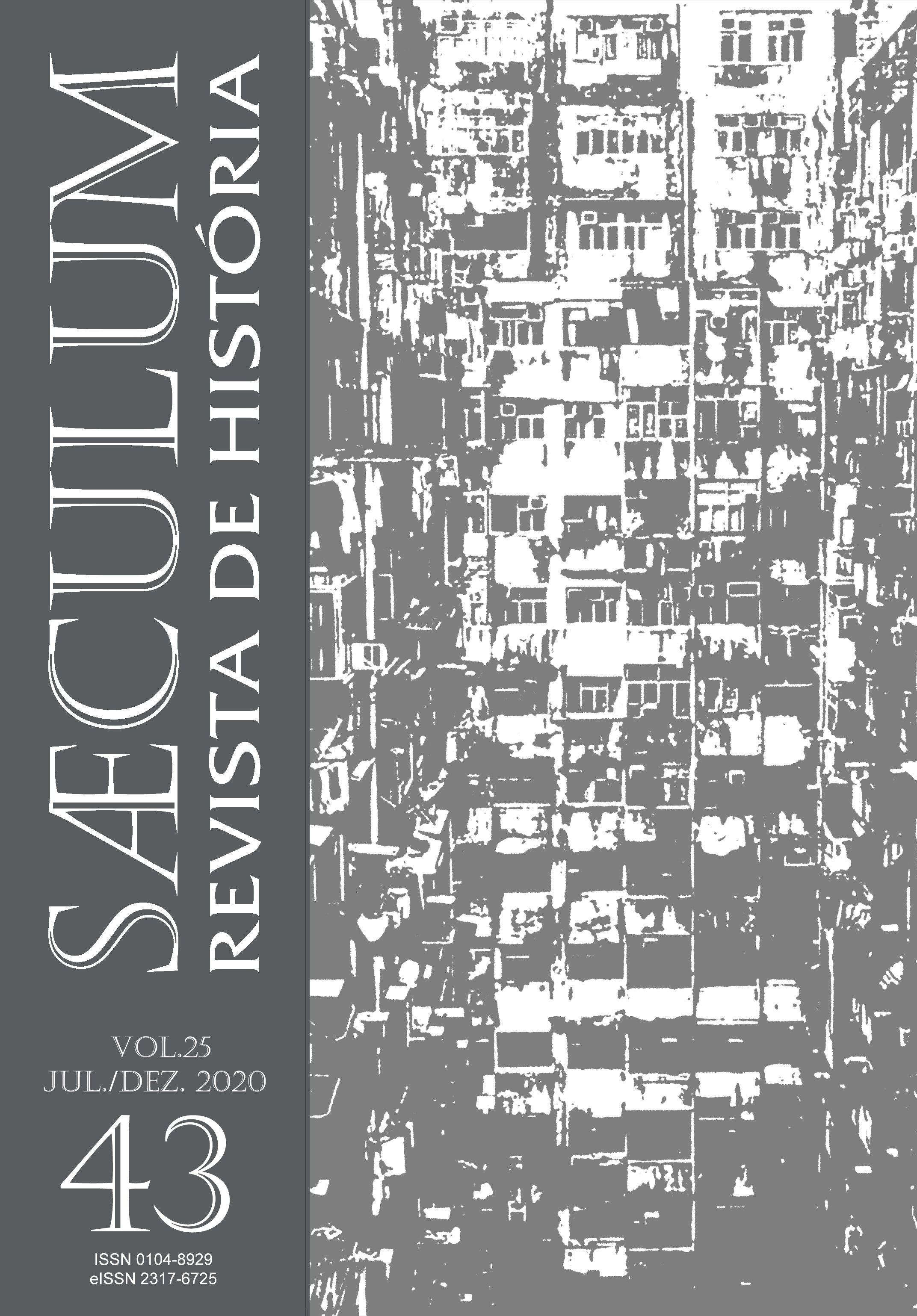Review colonization, re-read biopolitics, target power
the “paulistas” pioneers in the mines of Serro do Frio and Vila do Príncipe, Minas Gerais, 1702-1720
DOI:
https://doi.org/10.22478/ufpb.2317-6725.2020v25n43.53904Keywords:
Colony Brazil, Political ancestry, Biopolitics, Colonial pedagogical gesture, Cultural heritageAbstract
The view of national elites on the 18th century São Paulo “bandeirantes” [pioneers] in Minas Gerais is centered on the notion of vocation and mission for the construction of a free, politically modern and progressive nation. We propose a reinterpretation of the political function of the pioneers in colonial modernity led by the Portuguese Crown and its General Government in Brazil around the discussion on biopolitics, disciplinary power, power and violence, authority and violation of bodies. In general, the notion of colonial pedagogical gesture invites us to review the biographies on another historical perspective, that of submission; in a specific way, we show how the paulistas pioneers, fierce spokesmen for metropolitan biopolitics, not only promoted colonization centered on violence, but created a modus operandi that structured the authoritarian political game, a legacy that still reverberates today. Based on bibliographic and documentary, historical and political research methodology (Foucault and Arendt), we reveal the intricate game of political intentions between pioneers and the Portuguese Crown, marked by the social performance of these characters, with multiple conflicts and interests, in which death and murder were part of the process, on a regular basis. The result of the study shows that Brazilian colonial history has a deep confusion in its political tradition between power and violence, authority and violation, culturally inherited by capillarized mechanisms of the reproduction of the biopolitics.
Downloads
References
ARENDT, Hannah. Entre o passado e o futuro. 3.ed. São Paulo: Perspectiva, 1992.
ARENDT, Hannah. Sobre a violência. Rio de Janeiro: Relume-Dumará, 1994.
FOUCAULT, Michel. Microfísica do poder. 6.ed. Rio de Janeiro/São Paulo, Paz e Terra, 2017.
BRISKIEVICZ, Danilo Arnaldo. A arte da crônica e suas anotações: história das Minas do Serro do Frio à atual cidade do Serro em notas cronológicas. (14/03/1702 a 14/03/2003). Porto Alegre: Revolução E-book – Simplíssimo, 2017.
HESPANHA, António Manuel. As vésperas do Leviathan. Instituições e poder político. Portugal – séc. XVII. Coimbra: Almedina, 1994.
LEME, Luiz Gonzaga da Silva. Genealogia paulistana. São Paulo: Duprat & Comp., 1903-1905.
MELLO, Christiane Figueiredo Pagano de. Forças militares na segunda metade do século XVIII. Rio de Janeiro: E-Papers, 2009 [E-book].
MONTEIRO, Nuno Gonçalo. Poderes municipais e elites sociais locais (séculos XVII-XIX): Estado de uma questão. In: O município português. Funchal: Centro de Estudos de História do Atlântico, 1998. p. 79-90.
PINTO, Luiz Antônio. Memórias municipaes. Revista do Arquivo Público Mineiro, Belo Horizonte/MG, n. VII, p. 939-962, 1902.
SILVA, Dario Augusto Ferreira da. Memória sobre o Serro antigo. Serro: Typographia Serrana, 1928.
SILVA, António de Morais. Diccionario da lingua portugueza composto pelo padre D. Rafael Bluteau. Reformado, e accrescentado por Antônio de Morais Silva natural do Rio de Janeiro. Lisboa: Officina de Simão Thaddeo Ferreira, 1789. 2 vols.
SILVA NETO, Casimiro Pedro da. Desbravadores do Brasil. Brasília: Sesc-DF, 2018.












